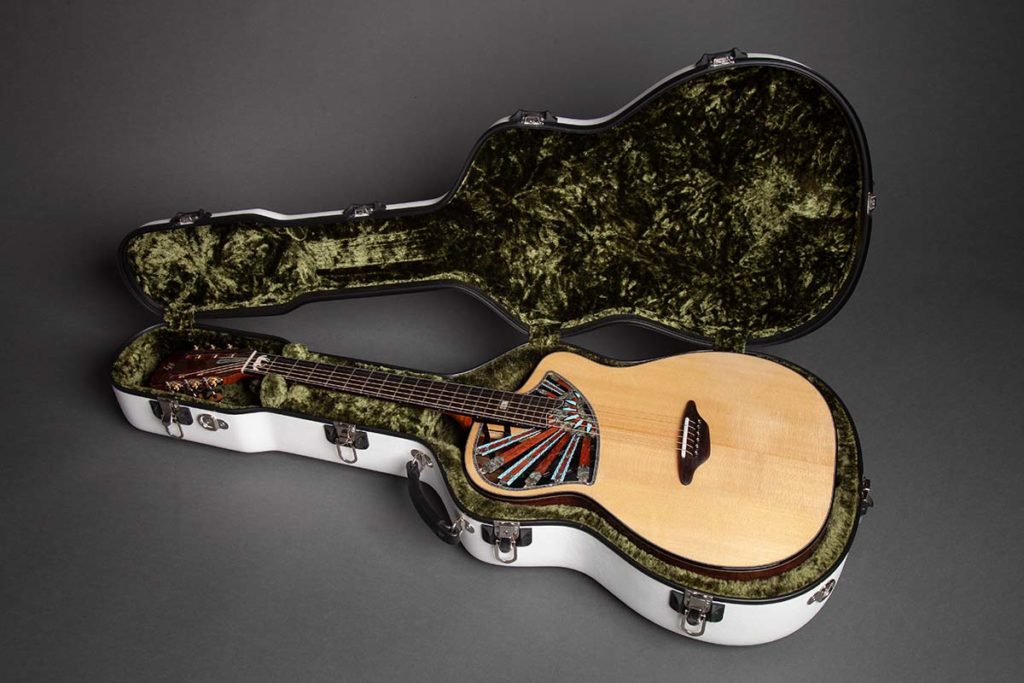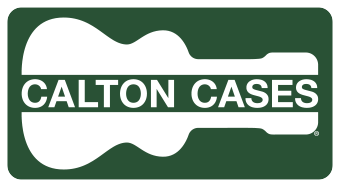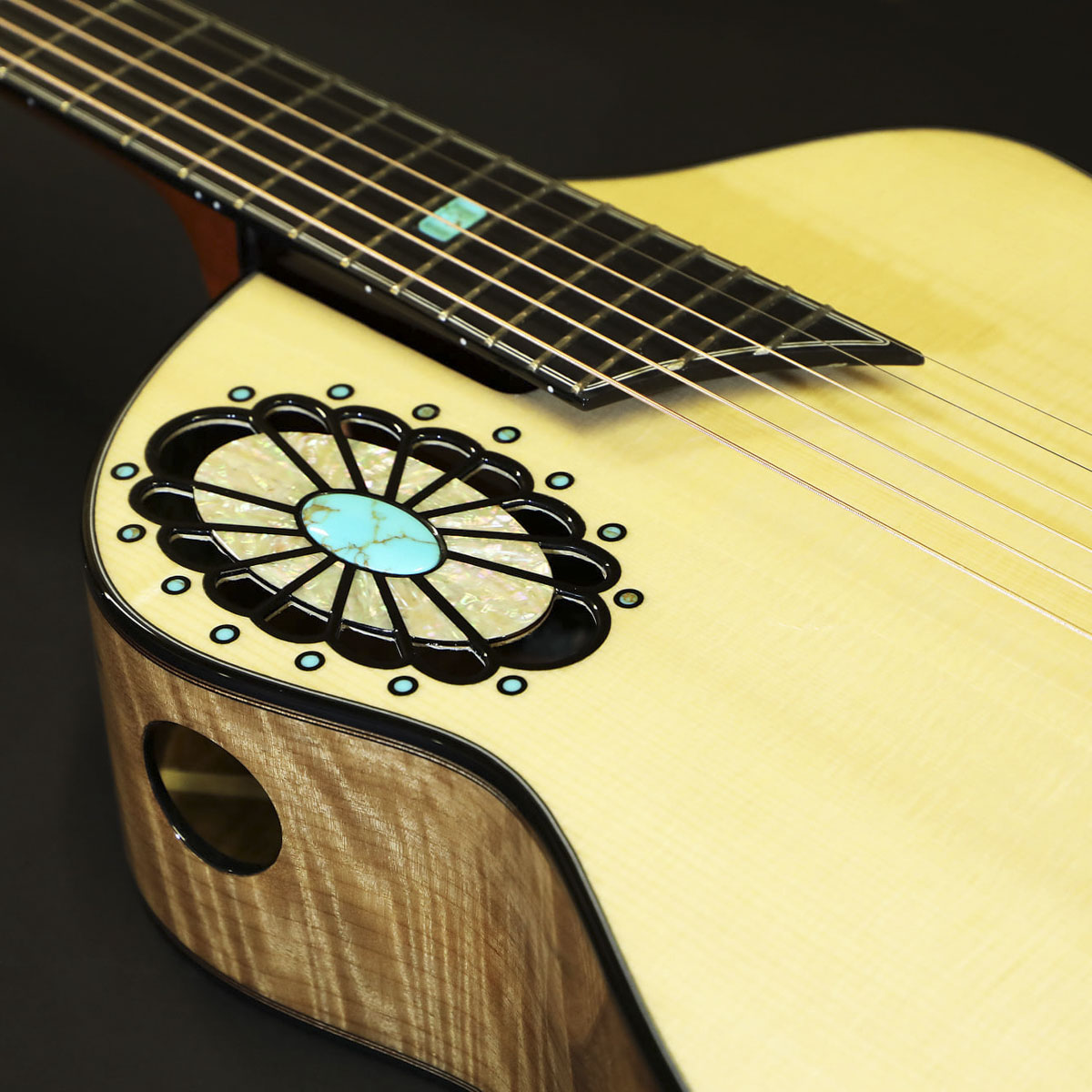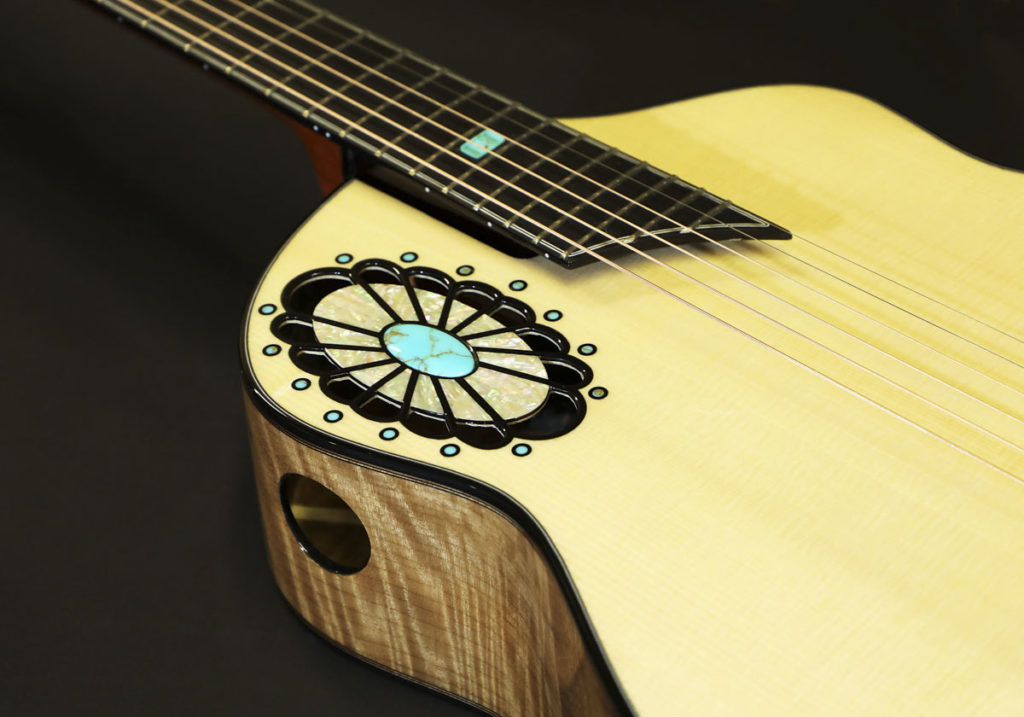
Jeremy and Chris Jenkins are an unstoppable duo for creativity, design, and all things luthiery. The two operate Lame Horse Guitars from 3 different shops, in 2 different cities, 200 miles apart. Yet, they communicate every day and collaborate to create instruments that stand as testaments to design and craftsmanship. This works in a variety of facets, where sometimes they ship parts back and forth to one another, others they travel to one another’s shop to work. No matter the arrangement, where Jeremy enjoys living in Austin, and Chris in the Dallas-Fort Worth area, the two cherish their Texas roots and imbue every guitar with the power and pride that comes from lives lived in the Lone Star State. Today we are thrilled to celebrate Lame Horse Guitars as the subject of our Top Shelf Luthier Series, a Father/Son goliath of guitar-making and a true friend to us here at Calton Cases.
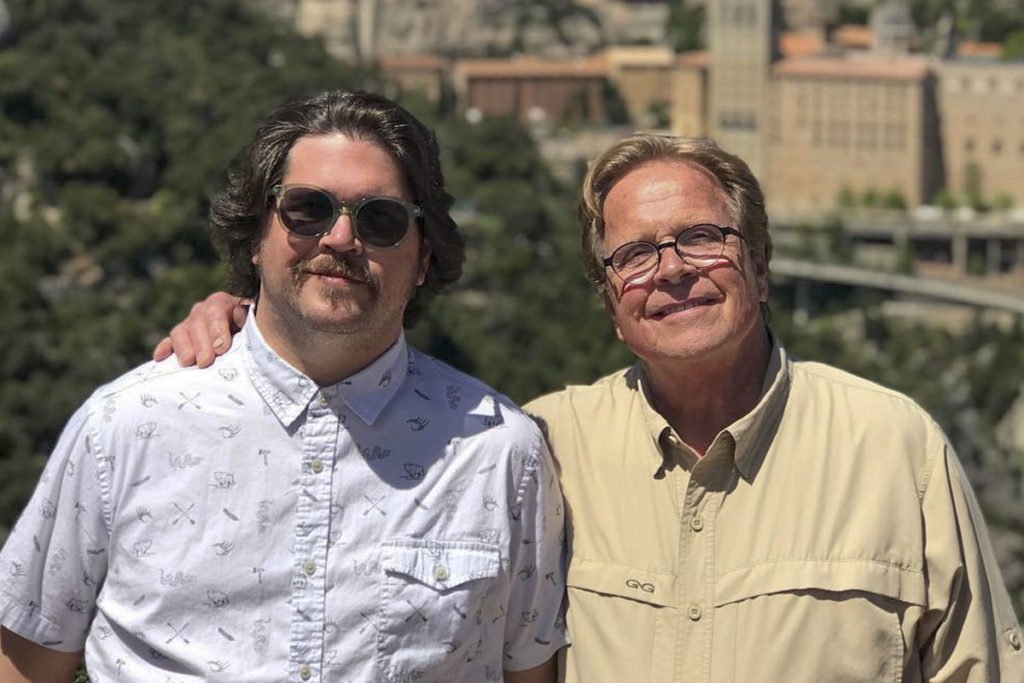
Chris and Jeremy Jenkins
Family First
Lame Horse was originally a name for an aspect of Chris’ veterinary trade. Over time, his business would change such that he would no longer need the name. From there, it went to Jeremy, his youngest son, who used it as the title for his film company in an ironic effort to recycle stationary. When that also folded, the two weren’t ready to retire the name, and lo, Lame Horse Guitars was born.
The even greater story comes before the name, and for Chris, it all began in the early 90s. At the time, Chris was working as a veterinarian, when Jeremy, his youngest son, wanted a new guitar. A frugal man as much as a crafty one, Chris decided to build his son the guitar himself.
Using only the knowledge he could derive from a book called “How To Build Your Own Electric Guitar”, Chris began a crash course in luthiery that, by all accounts, should have been doomed to fail. He had no background, no heritage in the craft, but just by using a friend’s bandsaw, his own Craftsman jigsaw, and a Craftsman router, Chris created an exceptional guitar. It was a solid body bass guitar, watermelon green with abalone covers on the pickups, with a Hofner violin bass shape; a guitar that Jeremy still proudly plays to this day.
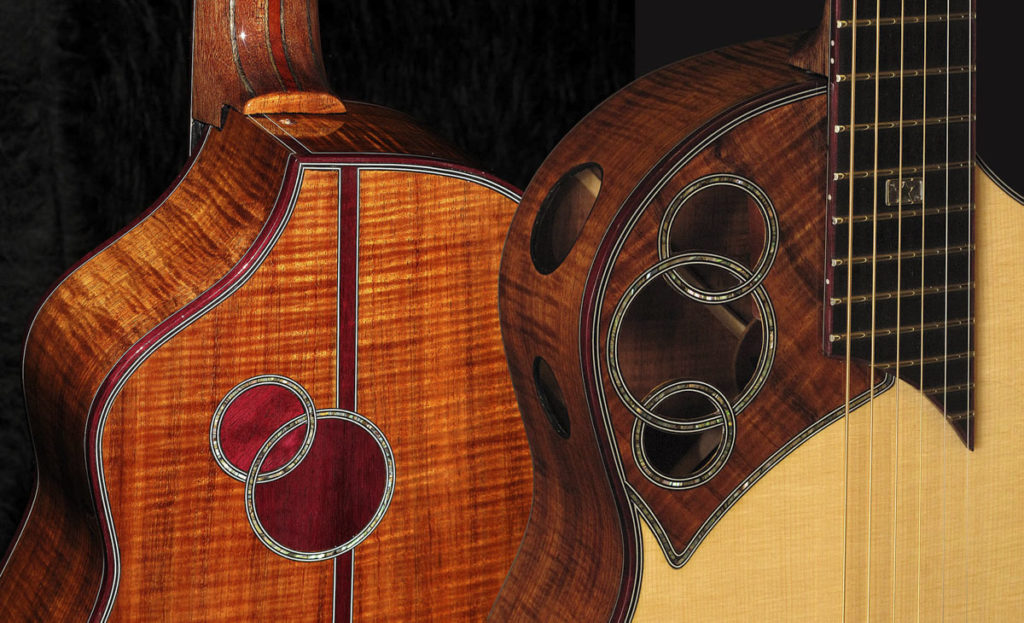
After the apparent success of this guitar and the resounding support he got for his work from friends and peers, Chris opted for formal education. He enrolled in an acoustic guitar construction class at the American School of Lutherie, in Healdsburg, CA, in 1995, taught by Charles Fox.
When Chris completed much of this training, he set out to launch his own brand of guitars. Initially, he built acoustics, where he strived to stay unique amongst the fray of competing and talented luthiers in the field.
An interesting order would set him on a path of specialty guitar making unlike anything seen before. His third guitar was an order from Andy Wilkinson, who noted he wanted a guitar “small enough to pack it on his saddle, with a sound as big as Texas”. Chris took the instruction in stride and delivered the final guitar to a delighted Andy, who aptly named it the Saddle Pal. That very design is now a feature of the Lame Horse selection and remains basically unchanged today.
Chris has since brought his son, Jeremy, into the business and the two have gone on to build out the Lame Horse Guitars line, using people like Steve Klein, Ervin Somogyi, Fred Carlson, Harry Fleishman, Charles Fox, Bryan Galloup, and many others, for influence, and leaning on the incredible stature of Bill Collings for support and perspective over the years.
The business now is thriving, and since Jeremy has joined the fray, the two have forged a business standard they can both be proud of. For that, they only feel comfortable when those guitars are secured in a reliable case, which is why they furnish a Calton Case with every guitar they sell.
The Exceptional Lame
“Every instrument is fine-tuned and voiced by hand to ensure they’re truly perfect.”
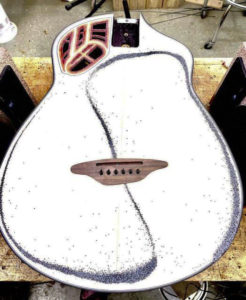
The Jenkins are driven by an insatiable quest for tailoring and innovating. Their guitars focus on user experience over production – continuously considering the small and often overlooked details about guitar playing in an effort to be more playable, enjoyable, and resonant. Part of this is as a result of their Easily Adjustable Playing Action. This allows the player to quickly and easily dial in their playing action to tailor to their own unique playing style. All guitars also feature a rear access panel for easy ability to visualize, customize, and repair an instrument
The Jenkins Boys claim:
“Not having an access panel in a hand-made guitar is like buying a Ferrari, and welding the hood shut.”
All Lame Horse guitars are built using what Jenkins refers to as Scientifically Selected Soundboards. They focus on selecting guitar tops using scientific methods to predict the top’s ability to produce sound in response to harmonic stimuli.
Additionally, every Lame Horse guitar has sides made up of a normal, bent, solid tonewood with a decorative wood veneer laminated to the inside of it. They become innately crack-resistant and glue the joints lock the rim’s shape to overcome any tendency to spring back.
In addition to all these features, the Jenkins’ attention to interior detail elevates Lame Horse’s status to a cut above the rest. Beautiful inside and out, their inlay work is unrivaled in the field. They use hot hide glue to attach bracing, kerfing, tops, and backs. “Our goal is for each instrument to have an emotional connection with its owner, and to continue to have the ability to do that for generations to come”
Finally, every guitar made features a small Zuni good luck charm, fastened on the inside of the instrument. Chris says:
“We figure if you’re a guitar player you could probably use all the luck you can get. And the maker – Well the maker probably needs the luck more so than the player.”
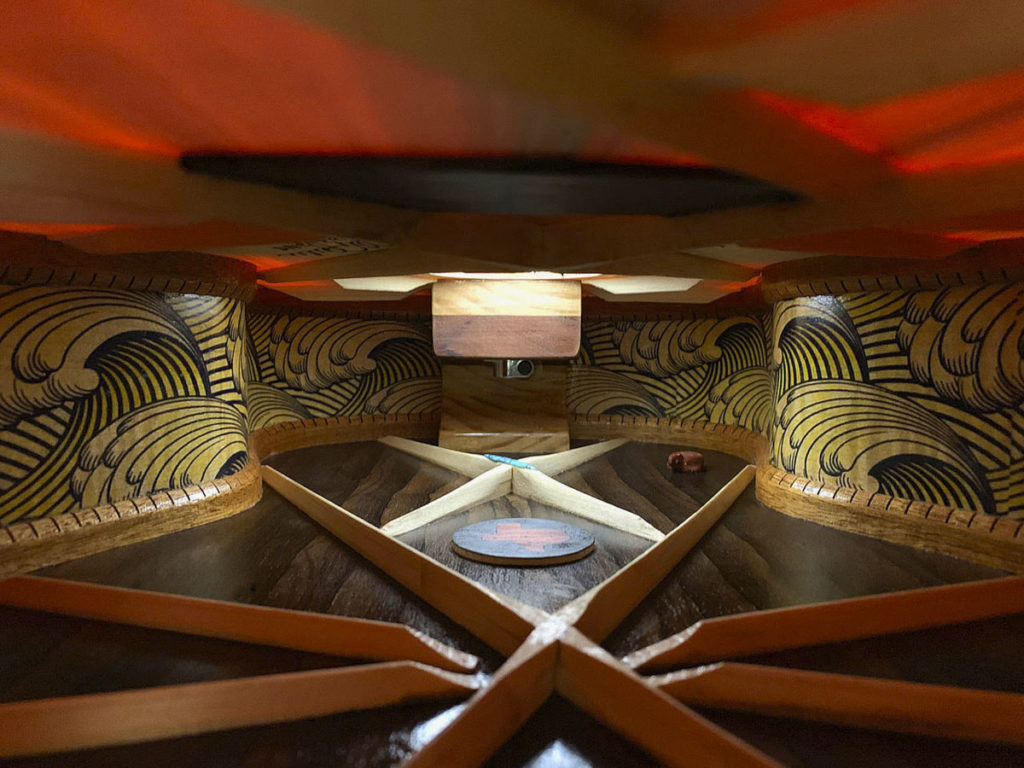
The Legacy of Lame Horse
The Future is Here
The future of Lame Horse guitars is made every day: an established trajectory of ever-growing and ever-refining their instruments. Chris and Jeremy are a talented pairing destined to endow this trade with a new generation of construction and creativity. They are living proof that there are new ideas under the sun; here within this Father-son business.
For your own Lame Horse Guitar visit https://lamehorse.net/ or to customize your Calton Case for Lame Horse guitars go here: caltoncases.com/lame-horse-instruments-acoustic/
